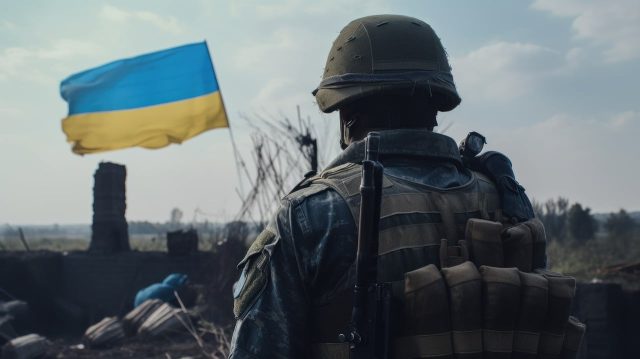
Top-level representatives from nearly 100 countries from around the world attended the summit in Switzerland on the 15th-16th of June, the first meeting of world leaders dedicated to achieving peace in Ukraine. The big absentees from the meeting were, as expected, Russia and its main ally China. In the absence of Kremlin representatives, as expected, the talks had little concrete impact on ending the war. But Ukraine, which has plans to strengthen its military industry, was nonetheless promised an additional $1.5bn in US aid. The money would be used mainly to develop the energy sector and tackle humanitarian problems.
However, it is worth noting that out of the 93 participants, 80 supported the text of the final declaration of the Peace Summit. Among the countries that did not sign the document were six members of the G-20 – representing the world’s leading economies – Brazil, Mexico, Saudi Arabia, South Africa, India and Indonesia, as well as Armenia, Bahrain, Thailand, Libya, the United Arab Emirates, Colombia and the Vatican.
Those present at this first summit on peace in Ukraine, which was not attended by Russia – the main player in the conflict, which initiated the military aggression – called in their joint declaration for “the involvement of all parties” in the conflict in efforts to end hostilities. The meeting’s final document addresses nuclear safety, food security and prisoner exchanges. According to Italian Prime Minister Giorgia Meloni, the three issues – nuclear safety, food security and prisoner exchanges – are “minimum conditions” for negotiations with Russia.

The UN Charter and “respect for territorial integrity and sovereignty can and will serve as the basis for achieving a comprehensive, just and lasting peace in Ukraine,” the document says. The signatories of the final declaration, adopted after the two-day meeting, also called for Ukraine’s “territorial integrity” to be the basis of any future peace agreement. The text of the document, seen by Reuters, reaffirmed “the principles of sovereignty, independence and territorial integrity of all states, including Ukraine”.
“We believe that reaching peace requires the participation of all parties and dialogue between all sides. We have therefore decided to take concrete steps, in the future, in the above-mentioned areas, with increased engagement of representatives of all sides,” the document added.
It also stresses that “food security must under no circumstances be militarized”, as the invasion of Ukraine, one of the world’s main grain exporters, has had dramatic repercussions on the supply of several countries in the world. There have also been consequences for fertilizer exports, both Ukrainian and Russian. The meeting’s final document also calls for the release of all prisoners of war, as well as “illegally deported Ukrainian children”.
Switzerland agreed to host the meeting at the request of Ukrainian President Volodymyr Zelensky. He made the request to officials in Bern in the context of the presentation of the ten-point peace plan at the end of last year. But the talks in the Swiss town of Burgenstock on the 15th-16th of June did not follow Zelensky’s plan too closely. And then the Kiev leader announced he was preparing a new plan to be agreed by all world leaders.
“It is very important for us to present a plan to end the war,” Volodymyr Zelensky said after the Burgenstock moment.
“We do not want to prolong this war and we need to reach a just peace as soon as possible,” added the Ukrainian president, who insisted that his country should strengthen its military industry in parallel because “Russia only understands strength and respects only the strong”.
Ahead of the conference, Swiss President Viola Amherd said the aim of the conference was to create “a platform for dialog” to discuss the first steps needed to achieve peace in Ukraine. Many governments thanked Switzerland for organizing the conference, Amherd also stressed. It is a broadly supported process, she added, to lay the groundwork “for a future peace summit with Russian participation”.
Russia announced from the outset that it would not attend the conference in Switzerland. And its absence has encouraged allied powers such as China to announce that peace talks cannot work in such a format, that they will only work if Russia and Ukraine both take part. Beijing, like Brazil, has also said that other negotiating options must be explored to achieve peace in Ukraine.
In the run-up to the conference, the German government insisted that China should take part, but its insistence fell on deaf ears. In the end, German Chancellor Olaf Scholz expressed the hope that perhaps a way could be found in Switzerland to start a process in which Russia would one day also participate. When the time is right.
“For now Russia and its leaders are not ready for a just peace. This is a fact,” Zelensky insisted at the end of the Burgenstock conference.
According to him, negotiations with Russia can start tomorrow, but only if it withdraws from Ukraine.
Russian President Vladimir Putin ready to negotiate
In a speech to Russian foreign ministry officials, Vladimir Putin vowed to order an immediate ceasefire if Ukraine withdraws its troops from its four Russian-claimed provinces and gives up its aspiration to join NATO. He emphasized that in order to come to the negotiating table, Ukraine must become “a neutral country” outside military blocs and non-nuclear – as it has the largest nuclear power plant in Europe (!).
“Ukrainian troops must completely withdraw from the entire territory of the Donetsk and Lugansk People’s Republics, and from the Herson and Zaporozhye regions (annexed on paper – ed.) Negotiations (peace) will then be possible,” the Kremlin leader said.
In response, US Defense Secretary Lloyd Austin said on Friday that Vladimir Putin is not in a position to put conditions on Ukraine to end the war.
“He has had several hundred thousand soldiers wounded and killed in this unjust and unprovoked invasion. He could end it today if he chose to do so. And we call on him to do so and leave the sovereign territory of Ukraine,” Austin said.
Still, Ukraine got some good news in Burgenstock. US Representative Vice President Kamala Harris announced $1.5 billion in aid for Ukraine, mainly for the energy sector and to address humanitarian issues. A third of the money – 5 billion dollars – is additional funds earmarked for the energy sector. Another 324 million dollars comes from previously pledged financial support and should be directed to repairing the energy infrastructure. The rest of the money is earmarked for food assistance, health services, civilian shelter, water, sanitation and hygiene services for the Ukrainian population.
President Joe Biden was not present in Switzerland at Burgenstock, but met Volodymyr Zelensky at the G7 Summit in Italy, where the two signed a bilateral Security agreement. The decision was taken – analysts say – amid fears that if a new leader, namely Republican Donald Trump, is installed in the White House, US support for Ukraine and the involvement of its great ally across the Atlantic in the war will drop considerably in the near future.
Donald Trump, should he win this year’s presidential election, has said he would end the Russian-Ukrainian war. The Republican leader is aiming for a plan under which NATO will no longer expand eastward. As the US faces a historic rise in foreign debt, military recruitment is declining and the industrial base lags behind Russia and China, NATO’s “radical reorientation” is inevitable. In other words Ukraine and Georgia joining the North Atlantic Alliance will be ruled out in the future. Donald Trump claims that he is willing to discuss with the Kremlin leader how much of Ukrainian territory will remain under Russian control as well as forcing Ukraine to give up Crimea and Donbas currently under Russian occupation.



 Subscribe
Subscribe